Edible Forest: Celebrity Chef Feeds His Community
Feat. Rodrigo Pacheco from Bocavaldivia
The hero we’ll be spotlighting today is something of a celebrity within the world of culinary arts. A contestant on Netflix’s critically acclaimed cooking show The Final Table, Rodrigo Pacheco is arguably Ecuador’s most beloved chef. His restaurant Bocavaldivia is revolutionizing the culinary experience and creating a model for a more sustainable future. (We’ll expound upon all the heroic things Bocavaldivia is doing later.) First, let’s talk a little about Rodrigo’s background.
How Rodrigo Pacheco Chef Discovered His Passion for Cooking
We asked Rodrigo how he discovered his passion for cooking. To our surprise, he had begun to show a love for the art from as young as two years old. He describes his childhood home’s kitchen as a place where he was constantly “visiting a relationship,” whether it be his relationship with his family or with the food his family cooked. There was a sense of comfort and community surrounding the preparation of food, and this is something that he strives to preserve in all his culinary endeavors.
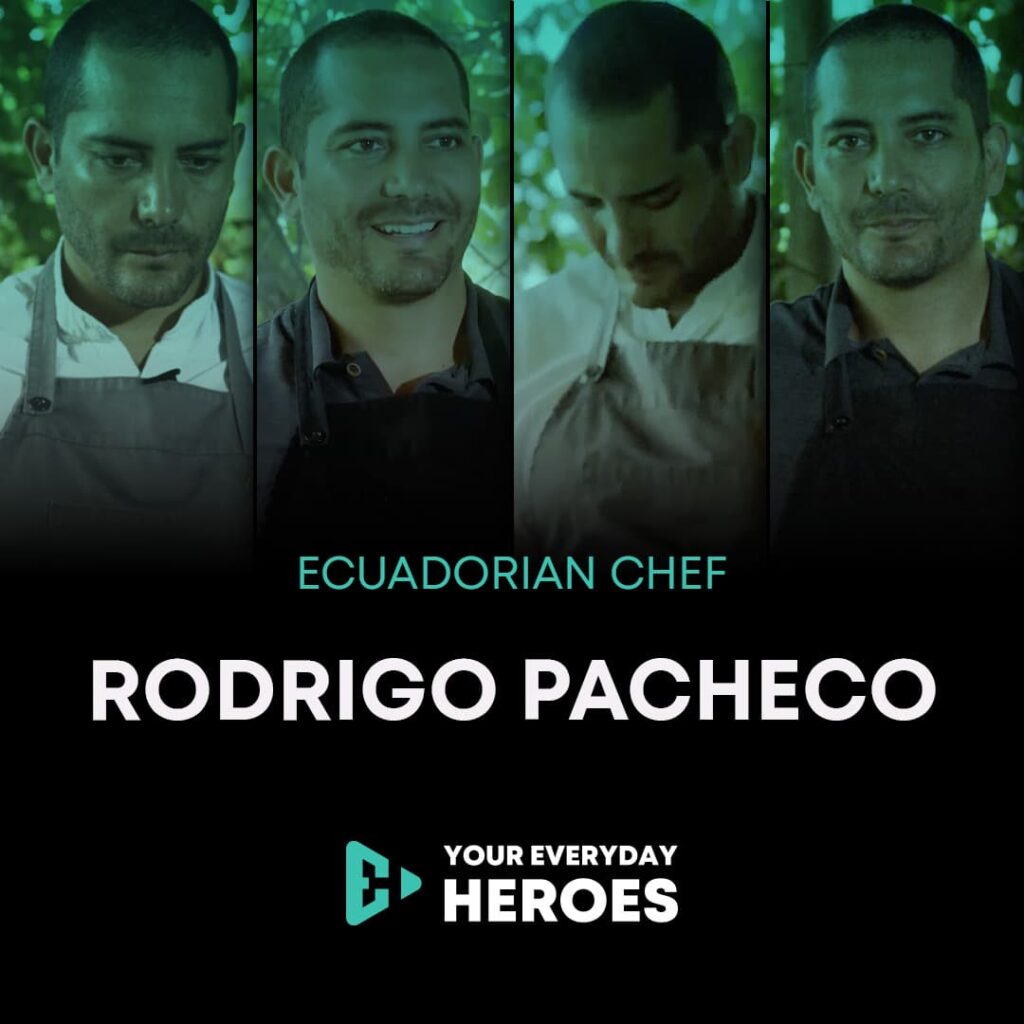
According to a Mr. and Mrs. Smith interview with Rodrigo, his skills in the kitchen were supplementary to his skills as a young fisherman: “I was a fisherman first, so I learnt how to catch and prepare food from the ocean,” he says.
Rodrigo Pacheco Chef Hones His Skills in France
As a young man, Rodrigo briefly left his native Ecuador to study culinary arts at Ipstitut Paul Bocuse, a highly revered French culinary school. Combining the precision of French cuisine with that of his own culture, he soon became a member of the French Culinary Academy and landed jobs as a chef at French restaurants with Michelin stars, including Alain Chapel, La Palme d’Or, and Michel Bras.
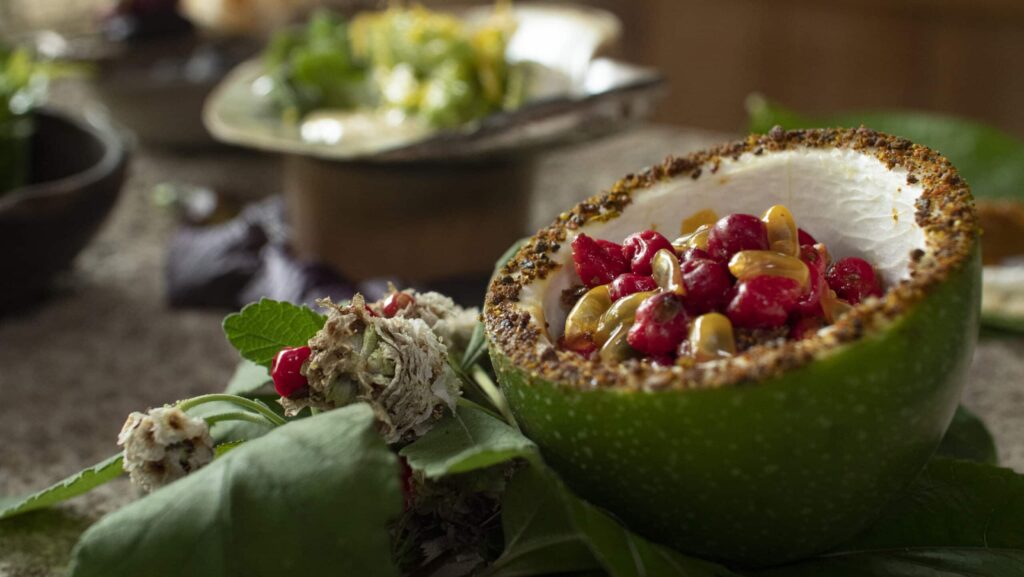
Note: According to the Institute of Culinary Education, “Plain and simple, a Michelin star is a badge of honor, regardless of how many a restaurant receives (between one and three, with three being the highest caliber).”
In addition to being a contestant on The Final Table, Rodrigo is the owner and executive chef at Casa del Abelo Art Hotel and Restaurant in Tena, Ecuador. However, perhaps his greatest contribution to the culinary arts—and to the world in general—is Bocavaldivia.
What Is Bocavaldivia?
Bocavaldivia is Rodrigo’s passion project, combining the two things he is most passionate about: cooking and conservation. Located in Puerto Cayo—off the coast of Ecuador—it is both a restaurant and “creative permaculture project.”
Spanning over 200 acres of land, Bocavaldivia is its own ecosystem, an “edible forest,” as Rodrigo calls it. For over a decade, he has been planting food species amongst the indigenous plants. All food at the restaurant is sourced from his man-made forest (that was once merely barren land).
Rodrigo stresses that his edible forest is not an artificial ecosystem. In an interview with CNN, he clarifies, “All the elements that work in a normal forest, we try to replicate into an edible forest. They are native species… We’re just gathering all the edible species and putting them together in a place.”
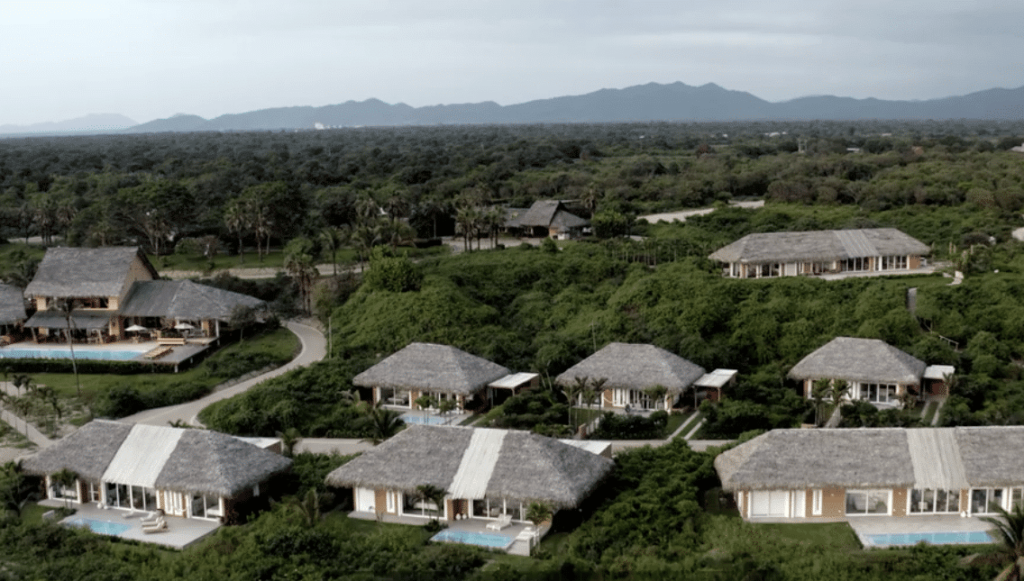
In the same interview, he goes on to talk about how edible forests like Bocavaldivia could potentially revolutionize our world’s treatment of the environment.
“We need to see trees and plants as the highest technology. They are working for us to create a better environment, a more rich environment… the more plants, the more climate-proof we are, the more resources we have, the more carbon we sequestrate, the more food we can get.”
While a concept like Bocavaldivia is a rarity, Rodrigo is confident that it can be replicated throughout the world.
“This is essential to combat climate change, to bring back biodiversity,” he tells Your Everyday Heroes.
How Industrialized Food Production Contributes to Climate Change
Bocavaldivia’s rejection of industrialized food production is creating a better environment. But how? Let’s take a look at some facts.
According to the New York Times’s article “Cutting Greenhouse Gases From Food Production Is Urgent, Scientists Say,” “Food production results in emissions of carbon dioxide, methane and other planet-warming gases in many ways, including land clearing and deforestation for agriculture and grazing, digestion by cattle and other livestock, production and use of fertilizers and the cultivation of rice in flooded paddies. Overall emissions are equivalent to about 16 billion metric tons of carbon dioxide a year, or about 30 percent of total global emissions.”
By turning once-barren land into an edible forest that not only provides food for his restaurant, but also contributes to global biodiversity, Rodrigo Pacheco is taking heroic strides to make the world a better place.
Did you miss Rajeev “Raj” Nirmalakhandan’s Featured Showcase?
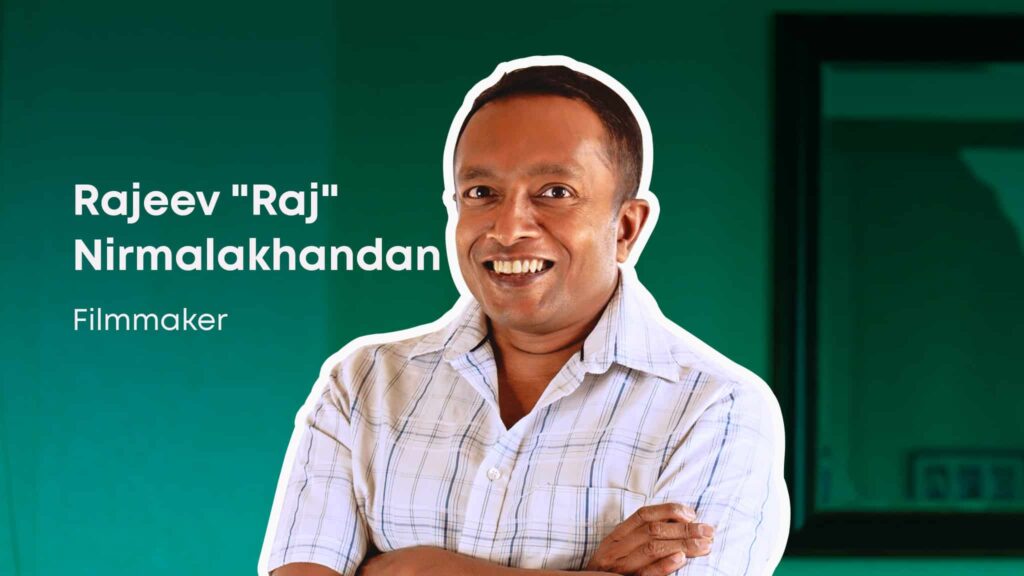
“We create an ecosystem that will last for hundreds of years,” he tells us. “And when you maintain this ecosystem, you definitely see a different dynamic. We invest in the weather of the future.”
By re-adapting the gastronomy practices of indigenous cultures—and moving away from industrialized food production—Rodrigo is setting the template for a more sustainable future.
How Reforestation Contributes to a Better Environment
Rodrigo isn’t kidding when he talks about the power of plants. Below are just a few positive effects that reforestation has on our environment.
- Trees and forests absorb carbon dioxide, holding carbon in their branches, trunks, and roots for extended periods of time. Reforestation means that more carbon dioxide will be absorbed by forestry, and less CO2 will enter the atmosphere, a major contributing factor to climate change.
- Trees also absorb air pollutants through their leaves, filtering out contaminants like carbon monoxide and sulfur dioxide, thus improving air quality.
- Tree roots hold soil in place, preventing soil erosion, which can contaminate water sources and fill reservoirs/rivers/streams with sediment.
- Planting trees can help restore the habitats of plant and animal species, many of which have lost their habitats as a result of industrialization.
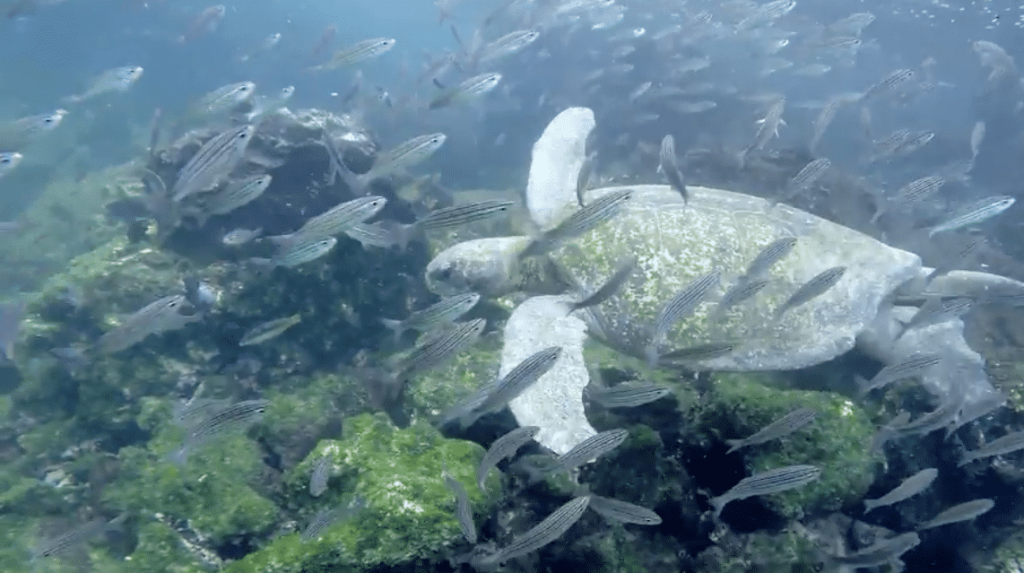
Rodrigo’s vehement commitment to reforestation makes him an everyday hero. He has the skill and charisma to become a celebrity chef. However, he instead uses his talent to make a change in the world that is beyond just himself. Even after he’s gone, the positive effects of Bocavaldivia will continue to be seen.
Rodrigo Pacheco Chef: A Respect for the Indigenous Culture
“We’re here in the southern coast of Ecuador, in the Manabi province,” Rodrigo tells us. “This is not just any land. There are 12,000 years of human history here… the Valdivia culture was the first culture in all of the Americas… when I came here 10 years ago and started cooking with the local people… I got the feeling that I was learning more than I would from any Michelin 3-star restaurant in the world.”

Rodrigo Pacheco chef ensures that Bocavaldivia preserves the cooking traditions of the culture whose land the restaurant occupies. He grows foods native to the region, and he prepares the dishes in a manner that is in alignment with tradition.
“We are growing different species of plants from Ecuador, such as purple potato, corn, cacao, papaya, peppers, pineapple, avocado, chilies, pumpkin.”
Additionally, Rodrigo hires local chefs—who are familiar with indigenous methods of cooking—to work at Bocavaldivia. And his employees have nothing but good things to say about him.
“Rodrigo is my hero because I like his way of thinking about nature,” says Gabriela Estupinan, a chef at Bocavaldivia.
Resources
If you’d like to learn more about Rodrogo Pacheco and Bocavaldivia, please consider delving into the resources below.
- Rodrigo’s Instagram
- Bocavaldivia’s official site
- CNN’s video profile on Rodrigo